|
March 17, 2021 - No. 18
Quebec Bill 59, An Act to Modernize the
Occupational Health and Safety Regime
Defend Workers' Right to Healthy and
Safe Working Conditions!
Hands Off Workers' Compensation!
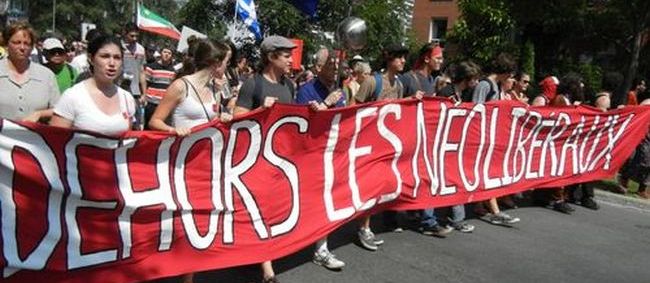
• Bill 59's Changes to the Occupational Injury and Workers'
Compensation System
Interview with United Steelworkers' Mining Sector Representative
• "The Government Cannot Deny What Workers Have Done for 40 Years to Defend Occupational Health and Safety" - André Racicot
Call to Action to Stop Deportation of Laval Detainee
• No to Deportations!
Quebec Bill 59, An Act to Modernize the Occupational Health and Safety Regime
 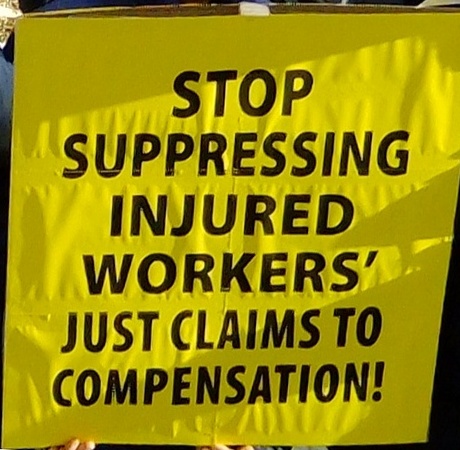 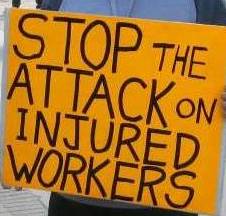
The Committee on Labour and the Economy of the Quebec National
Assembly is now carrying out a clause-by-clause review of Bill 59, An Act to modernize the occupational health and safety regime. The Bill, which is comprised of over 300 articles, modifies the 1985 Act respecting industrial accidents and occupational diseases
and the 1979 Act respecting occupational health and safety.
The government's claim that the bill modernizes the health and
safety regime is not true. The bill follows the path of the neo-liberal
anti-social offensive, imposing a complete overhaul of the health and
safety regime without any say or control by the workers, unions and
the defence organizations of injured workers, all of which have
thoroughly denounced it. It is estimated that hundreds of millions of
dollars are going to be "saved" by employers every year through the
denial of compensation for workers injured or made ill on the job and
from the reduction of programs dedicated to the care of injured workers
so that they can live a life in dignity with their rights recognized.
It
is a massive restructuring of the state to eliminate any previous space
that was available to workers and their organizations to give them a
modicum of say in the determination of the occupational health and
safety regime.
Workers' Forum joins with Quebec workers and their
organizations who are saying No! to the legislation, that it must not
pass, mobilizing to demand resolution to these critical problems in a
way that benefits workers and the society, based on workers' demands.
The fact that this attack is perpetrated in the midst of the COVID-19
pandemic which increases all problems related to the health and safety
of workers shows the criminality of the Legault government.
In this issue we are providing information on the legislation,
opposition and proposals for empowering the workers, and will provide
more information in the coming days and weeks, to contribute to making
the voice of workers effective in defeating this dictate and upholding
the right of workers to determine what are healthy and safe working
conditions, and for full compensation for injuries and illness.

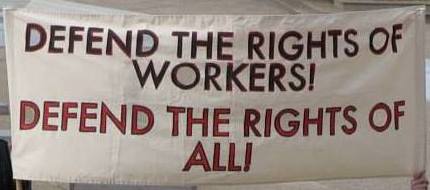
The Union des travailleuses et travailleurs accidentés ou
malades (UTTAM), the organization of Quebec workers who have suffered
workplace injuries or illnesses, has published information bulletins on
Bill 59 on its website here.
We are reproducing below some of the main points of the UTTAM analysis of Bill 59:
"Indeed, the reform provides for important modifications to the Act
respecting industrial accidents and occupational diseases (LATMP) which
will have the effect, in many cases, of denying the right of victims to
true consolidation, [i.e. optimization of treatment] of their injury.
"To name but a few of these attacks, we should mention:
- the abolition of the list of occupational diseases in the law and
its replacement by a regulation that the CNESST [Labour Standards, Pay
Equity and Workplace Health and Safety Board] will be able to modify at
will, which will make it more difficult to compensate occupational
diseases;
- the introduction of additional criteria for certain common
occupational diseases, such as tendonitis and deafness, reducing
eligibility for compensation;
- the abolition of the right to physical rehabilitation, a program aimed at eliminating or mitigating physical disability;
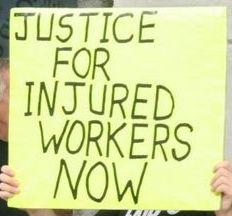 -
the possibility for the CNESST to impose vocational rehabilitation
measures during the period of medical treatment (before consolidation)
that would not be contestable, either by the worker or by his or her
attending physician;[1] -
the possibility for the CNESST to impose vocational rehabilitation
measures during the period of medical treatment (before consolidation)
that would not be contestable, either by the worker or by his or her
attending physician;[1]
- restrictions on the right to medical assistance (medication,
orthotics, prostheses, treatments) and the possibility of having
victims of occupational injuries pay for part of the treatment;
- the abolition of the presumption of disability for workers aged 55
and over at the time of an occupational disease or 60 and over at the
time of an occupational accident, who could now be forced to seek
employment despite their inability to return to work;
- limiting the power of the courts on what constitutes suitable
employment in order to prevent them from ruling in favour of workers
who challenge a CNÉSST decision on this subject;
- maintaining discriminatory measures against domestic workers.
"In addition, this bill contains several measures that make it even
more complicated for workers to file claims (processes to file claims,
time limits, etc.). Everything in this bill is aimed at making it more
difficult to access the system and compensation.
"Faced with a bill that threatens to expand employers' control over
occupational health and safety and that proposes a significant
reduction in the rights of injured or sick workers, we must react.
"In the coming weeks, we must tell the Minister of Labour loud and
clear that if this is really what he sees as the "modernization" of the
occupational health and safety system, for us, the answer is NO!"
Note
1. In its brief submitted during the special consultations and public hearings on Bill 59, UTTAM writes:
"Bill 59 provides, in its section 27, for the creation of a
new period during which it will be able to put in place
'pre-consolidation rehabilitation measures.' The CNESST would then have
the power to impose rehabilitation measures on the worker to 'promote
his or her reintegration into the workplace' while the worker is
undergoing medical
follow-up and receiving treatment for his or her injury.
"Among the measures that the CNESST could impose is a gradual
return to work so that the worker can develop the ability to gradually
return to the duties of his or her job. Once the Commission has decided
on such a measure, the worker would be forced to participate or face
suspension of benefits.
[...]
"The power granted to the CNESST to impose such measures,
which may include a gradual return to work, without the obligation to
obtain the agreement of the treating physician, is totally excessive. "

Interview with United Steelworkers' Mining Sector Representative
- André Racicot -
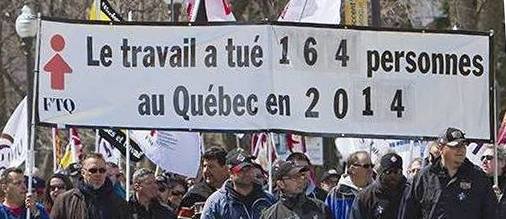
André Racicot is President of
United Steelworkers (USW) Local 9291 which represents, among others,
workers at Iamgold's Westwood Mine in Preissac in the
Abitibi-Témiscamingue region of Quebec.
Workers' Forum: How do you assess Bill 59 in relation to the right of workers to healthy and safe working conditions?
André Racicot: You have to remember that the current law, the Act respecting occupational health and safety,
recognizes four prevention mechanisms: the health program, the
prevention program, the health and safety committee and the prevention
representative. Currently more than 80 per cent of workers are not
covered by
these programs. The bill extends these to almost all sectors of the
economy, but with Bill 59 the government weakens all these provisions
in terms of workers' decision-making power by increasing the power of
employers.
For example, the health program that is established for specific
establishments is eliminated and incorporated into the prevention
program. The current health program aims, for example, to prevent work
accidents and occupational diseases in a given establishment.
Currently, the union must agree to the health program through its
participation in
the joint health and safety committee, and the physicians of the Public
Health Network in Occupational Health (RSPSAT) must also adopt it. From
now on, with Bill 59, employers will have all the power to determine
the content of the prevention program and the health program, now
incorporated into the prevention program, without the input
and support of the unions and without any medical advice, because the
specialized physicians of the RSPSAT are also excluded from the
process. According to the bill, if there is no agreement between the
unions and the employer, the employer alone will decide on the
prevention program.
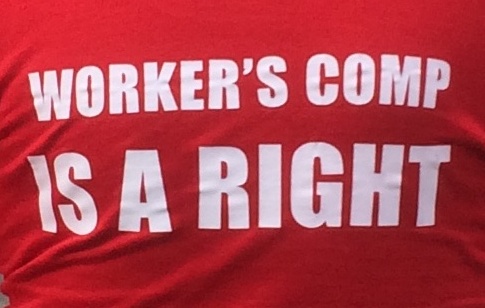 The
bill also introduces the concept of multi-facility. According to the
bill, it will now be possible for employers with several establishments
to set up a single prevention program, a single health and safety
committee and a single prevention representative for all of their
establishments. For example, if we take the example of health care,
there
may be dozens of health care institutions in the same region. The
prevention representative could have to cover all the institutions,
covering long distances, instead of each institution having its own
representative. In addition, the bill cuts prevention hours. If there
is no agreement between the employer and the union, the employer
decides on the
hours and we have no recourse to challenge that. It is obvious that the
only reason the bill cuts prevention hours is to save money for
employers instead of saving lives. The
bill also introduces the concept of multi-facility. According to the
bill, it will now be possible for employers with several establishments
to set up a single prevention program, a single health and safety
committee and a single prevention representative for all of their
establishments. For example, if we take the example of health care,
there
may be dozens of health care institutions in the same region. The
prevention representative could have to cover all the institutions,
covering long distances, instead of each institution having its own
representative. In addition, the bill cuts prevention hours. If there
is no agreement between the employer and the union, the employer
decides on the
hours and we have no recourse to challenge that. It is obvious that the
only reason the bill cuts prevention hours is to save money for
employers instead of saving lives.
At the level of the joint health and safety committees, workers will
no longer have access to the information they used to have, for
example, on the dangerous products used by the company. This
information will now be in the hands of the employer. Employers have
asked for this.
By an amendment to Bill 59 tabled by the government, the government
is proposing to remove the arbitrary risk assessment in different
sectors, which meant that prevention mechanisms applied according to
the level of risk.[1] Bill 59
expands prevention mechanisms to most sectors, but the issue of
reducing the hours of prevention representatives and health and safety
committees remains and the ultimate decision is in the hands of
employers.
WF: Given everything you have just said, how would you characterize this Legault government bill?
AR: In my opinion, this bill is a major setback in all
our conditions. If I look at the experience of workers in my sector,
the mining sector, the figures show that fatalities have dropped
significantly over the last 40 years because of the interventions that
workers have made to get employers to adopt measures to improve health
and safety in the workplace. One death is one too many, but no one can
deny that our interventions have been successful. With this bill, it
will be more and more difficult to intervene, which will lead to more
accidents, including fatal ones.
The government's main concern with this bill is to lower employers'
costs, to save millions of dollars on the backs of workers. This is
unacceptable and must not be allowed to pass.
The government cannot decide for the workers and deny everything
that has been done for 40 years and show no respect for our efforts.
Note
1. Bill 59 originally created three
levels of risk; low, medium and high. The number of meetings of the
health and safety committee and the number of hours that the prevention
representative was assigned varied according to the level of risk.
These three levels of risk were calculated on the basis of the cost of
occupational injuries in a given
sector of activity, spread over ten years. The bill called this a
disbursement from the Labour Standards, Pay Equity and
Workplace Health and Safety Board (CNESST). This was totally arbitrary
because, among other things, it did not take into account accidents
that are not reported, nor the systematic challenge by companies of
workers' claims for occupational injuries. In cases where the
interventions of workers and their unions has led to a decrease in
occupational injuries, a dangerous sector, such as mining, could have
been declared low risk and safety measures would have been reduced in
the sector. On March 10, the Quebec government tabled an amendment
which
will eliminate this provision about the levels of risk.

Call to Action to Stop Deportation of
Laval Detainee

On Monday, March 15, Solidarity Across Borders reported that: "One
month after becoming the first of several detainees to test positive
for COVID-19, "Marlon", (pseudonym chosen to protect his identity), a
migrant held at the Laval Immigration Detention Centre, is facing
imminent deportation to his country of origin. Marlon has yet to
receive a negative COVID-19 test result and is still exhibiting
symptoms such as fatigue and difficulty breathing. Despite this, the
Canadian government is proceeding with his deportation on unusually
short notice -- he was informed late on Thursday, March 11 that he
would be deported on Tuesday, March 16." As of March 17 he had not been
deported but the threat remains. Solidarity Across Borders has
announced a "Free Them All!" Rally, to free all detainees at the Laval
Centre, March 20, 11:00 am with details to be made available here.
The organization reports that "Marlon contracted COVID-19 in the
Laval Immigration Detention Centre, testing positive on February 15. He
immediately began a hunger strike to denounce the detention conditions
for migrants, which are conducive to spreading the virus among
detainees and personnel. Social distancing is often impossible and
guards and employees come and go from the centre, rotating on a daily
basis. As a strategy to curb the spread of the virus, the Canada Border
Services Agency (CBSA) placed detainees in conditions of solitary
confinement, a practice that has been denounced as a form of torture.
In response, a group of seven detainees staged a courageous five-day
hunger strike to demand their immediate release."
Should Marlon's deportation proceed, "he will be separated from his
wife and child in Montreal, who are currently seeking refugee status
after fleeing from violence in their country of origin."
More on Marlon's Situation
Tanya Rowell Katzemba, a Solidarity Across Borders spokesperson, informed the newspaper Le Devoir that
"[a]ll legal channels have been exhausted. We're angered upon learning
about the CBSA's intention of moving forward with his expulsion with
only a few days notice. We were thinking about requesting another
detention revision
hearing, but then all of a sudden we got the news. We don't understand
what the urgency is."
 The
same media source spoke with Marlon by phone. He confirmed with them
that he continues to have COVID-19 symptoms and that he is awaiting the
results of a test taken on March 15. He also told them, "I still get
frequent headaches, my eyes hurt and I have difficulty breathing,
especially when I'm sleeping." He also reported that he
has not "been given any medication, nor have any of the others who have
been infected, we were just placed in isolation for 14 days under
deplorable conditions." The
same media source spoke with Marlon by phone. He confirmed with them
that he continues to have COVID-19 symptoms and that he is awaiting the
results of a test taken on March 15. He also told them, "I still get
frequent headaches, my eyes hurt and I have difficulty breathing,
especially when I'm sleeping." He also reported that he
has not "been given any medication, nor have any of the others who have
been infected, we were just placed in isolation for 14 days under
deplorable conditions."
"We want Canada to respect its commitments towards the population of
keeping everyone healthy and safe. Within the present context of the
pandemic, it's appalling that people who fled their country because of
violence continue to be deported, it's completely inhumane," Tanya
Rowell Katzemba told Le Devoir, adding: "They're going to put
Marlon on a plane with other people, even if he still has COVID-19
symptoms, which runs counter to public health recommendations."
Marlon, his wife and child arrived in Canada without any
legal identification, having fled their country of origin in November
of 2019. Marlon told the media that he had been threatened and some of
his family members had been killed, "so we decided to flee the
country, hoping to begin a new life in Canada."
Solidarity Across Borders is calling on everyone to:
"Put pressure on Bill Blair and all government officials to demand
the immediate release of Marlon and a halt to his deportation, as well
as the release of all detainees! You can direct phone calls and e-mails
to:
"1) Federal Minister of Public Safety Bill Blair
Bill.Blair@parl.gc.ca
Telephone: 613-995-0284
Fax: 613-996-6309
2) Your member of Parliament, find their contact information here.
Social Media
"Share the call to action widely! Use the hashtag set #FreeThemAll
#StatusForAll along with #HungerStrikeLaval to show your support for
the struggle on social media! We encourage you to tag Bill Blair, Marco
Mendicino, Justin Trudeau, and other government officials."


(To access articles individually click on the black headline.)
PDF
PREVIOUS
ISSUES | HOME
Website: www.cpcml.ca
Email: office@cpcml.ca
|

